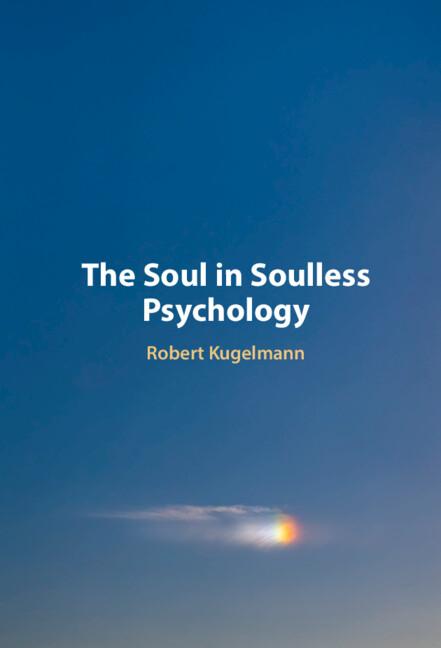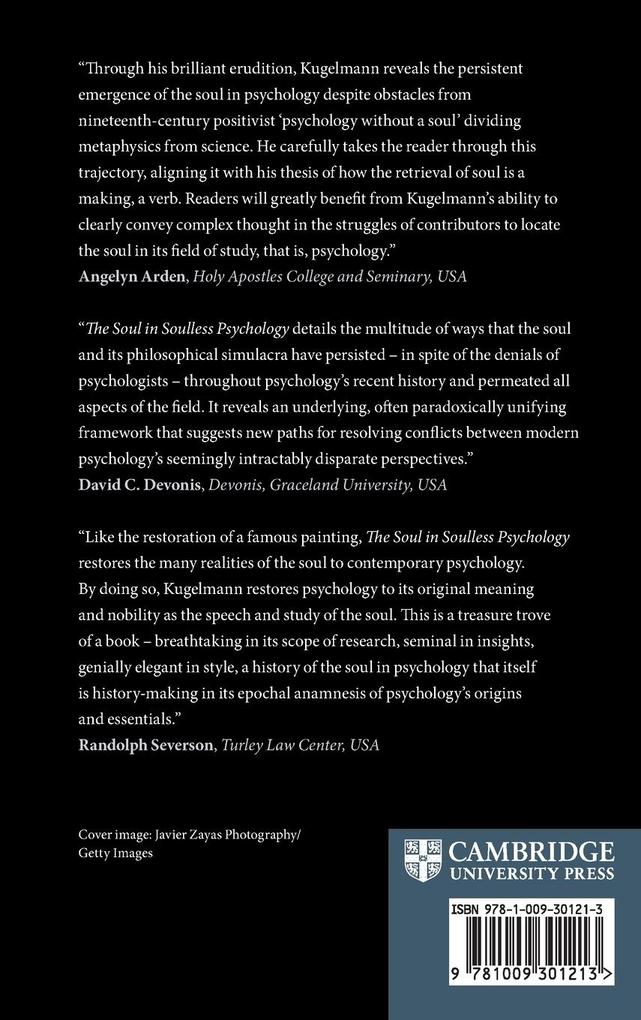
Zustellung: Mi, 02.07. - Mo, 07.07.
Versand in 2 Wochen
VersandkostenfreiBestellen & in Filiale abholen:
"Modern psychology began with a rejection of the "soul" as relevant for the science. How did that come about? The Soul in Soulless Psychology explores that question and details arguments for a soulless psychology. However, there was also opposition to this notion. This alternative history of psychology examines those who dissented from a "psychology without a soul," including Neoscholastic psychologists and others, such as Ladd, Mèunsterberg, and McDougall. Substitutions for the soul - such as self, personality, and the brain - show that even with the soul absent, its concerns were present. Innovative re-thinkings of the soul are addressed, as well as attempts at restoration of the soul into psychology. Moreover, historical psychologies of the soul kept the soul in view. In the twenty-first century, we find soul as a noun, an adjective, and a verb, all pointing to the necessity of the soul for psychology"--
Inhaltsverzeichnis
1. Re-Introducing the soul; 2. Psychology without a soul; 3. Dissenters I: the neoscholastics; 4. Dissenters II: other affirmations of the soul in early modern psychology; 5. Substitution: in the wake of 'psychology without a soul'; 6. Innovation; 7. Restoration; 8. Historical psychologies of the soul; 9. Soul as a psychological category.
Produktdetails
Erscheinungsdatum
16. Februar 2023
Sprache
englisch
Seitenanzahl
332
Autor/Autorin
Robert Kugelmann
Verlag/Hersteller
Produktart
gebunden
Gewicht
603 g
Größe (L/B/H)
229/152/19 mm
ISBN
9781009301213
Entdecken Sie mehr
Bewertungen
0 Bewertungen
Es wurden noch keine Bewertungen abgegeben. Schreiben Sie die erste Bewertung zu "The Soul in Soulless Psychology" und helfen Sie damit anderen bei der Kaufentscheidung.









